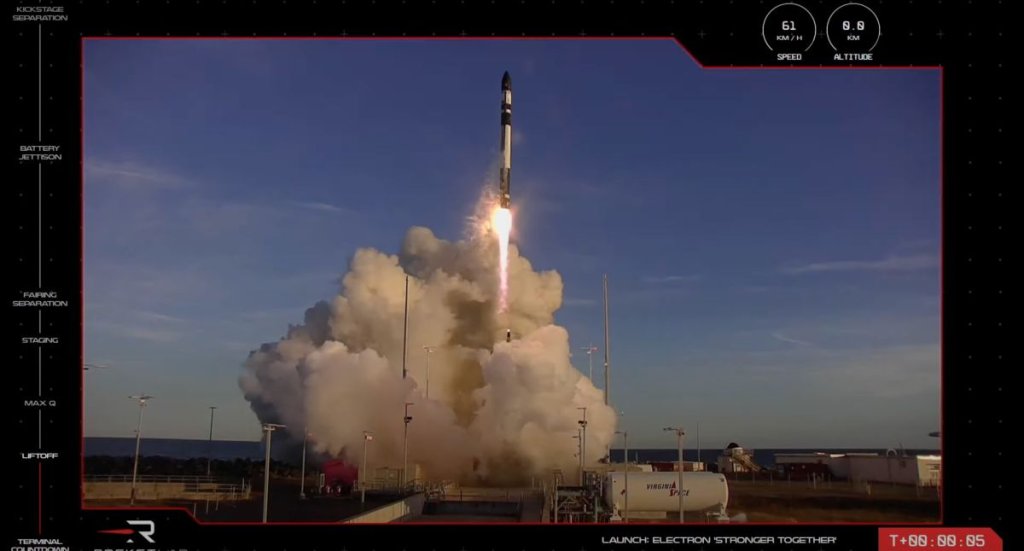Rocket Lab’s second launch from U.S. soil was a success.
A Rocket Lab Electron booster lifted off from NASA’s Wallops Flight Facility in Virginia Thursday (March 16) at 6:38 p.m. EDT (2238 GMT), kicking off a mission the company called “Stronger Together.”
Just under an hour later, the 59-foot-tall (18 meters) Electron’s kick stage deployed two radar-imaging satellites for San Francisco-based company Capella Space into a circular orbit about 370 miles (600 kilometers) above Earth as planned.
“Mission success for @capellaspace with our second launch from Launch Complex 2, Virginia! We’ve now launched 34 Electron missions total, deploying 157 satellites to space,” Rocket Lab tweeted (opens in new tab) just after the deployment.
Related: Rocket Lab launches 1st Electron booster from US soil in twilight liftoff
Mission success for @capellaspace with our second launch from Launch Complex 2, Virginia! We’ve now launched 34 Electron missions total, deploying 157 satellites to space.📸: @TheFavoritist pic.twitter.com/hlPtLfleLvMarch 16, 2023
The two new satellites are joining Capella Space’s SAR (synthetic aperture radar) constellation, which provides customers with detailed imagery of Earth both day and night, in all weather conditions.
These spacecraft allow “Capella Space to deliver the highest quality, highest resolution SAR imagery commercially available with the fastest order-to-delivery time, empowering organizations across the public and private sector to make informed, accurate decisions,” Rocket Lab representatives wrote in the mission’s press kit, which you can find here (opens in new tab).
Rocket Lab has now launched 34 orbital missions with the two-stage Electron to date, all but two of them from its Launch Complex 1 in New Zealand. The other Virginia flight, a mission named “Virginia Is for Launch Lovers,” lifted off from Wallops on Jan. 24 of this year.
The Wallops site, Rocket Lab’s Launch Complex 2 (LC-2), will get more and more action over the coming months, if all goes according to plan.
LC-2 “is designed to serve the responsive space needs of commercial, civil, defense and national security customers, supporting up to 12 missions per year,” Rocket Lab wrote in a statement (opens in new tab).
Rocket Lab has been working to make the expendable Electron’s first stage reusable; the company has recovered boosters on several previous missions, even plucking a falling rocket out of the sky with a helicopter on one occasion. But there was no such recovery attempt on “Stronger Together.”
Editor’s note: This story, originally posted at 6 a.m. ET on March 11, was updated on March 13 to reflect a new launch date of March 15 at 6 p.m. ET, then updated again on March 14 with the new launch date of March 16. It was updated again at 8 p.m. EDT on March 16 with news of successful launch and satellite deployment.
Mike Wall is the author of “Out There (opens in new tab)” (Grand Central Publishing, 2018; illustrated by Karl Tate), a book about the search for alien life. Follow him on Twitter @michaeldwall (opens in new tab). Follow us on Twitter @Spacedotcom (opens in new tab) or on Facebook (opens in new tab).

